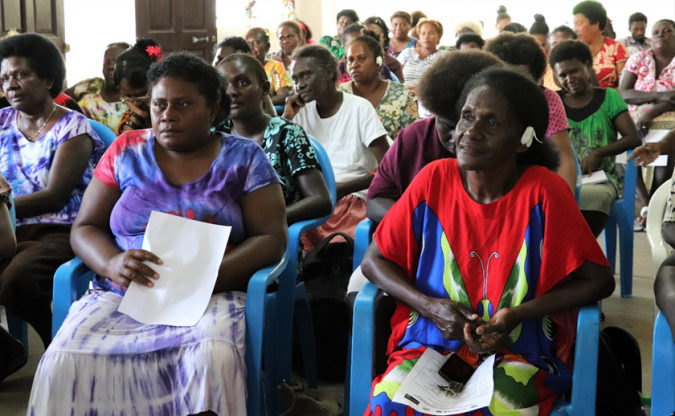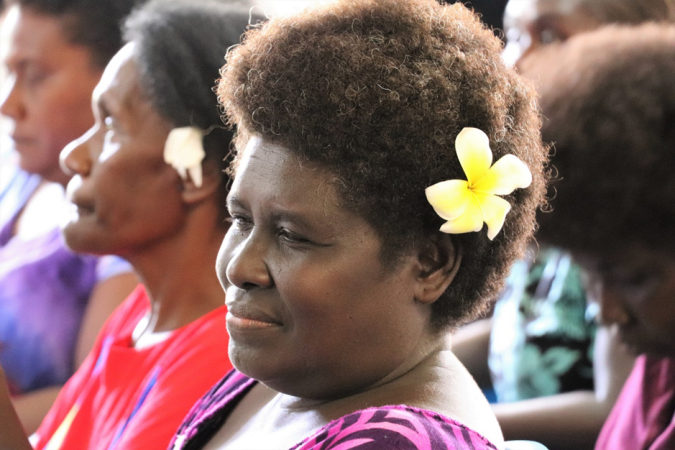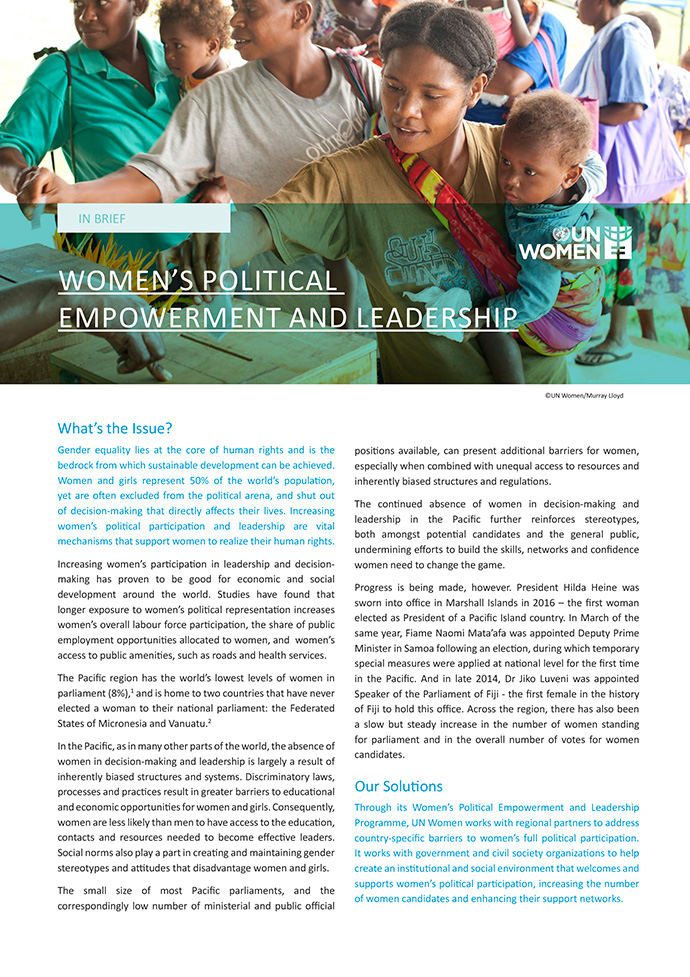Governance and Participation in Public Life

The Pacific region has the world’s lowest levels of women in parliament (7.3% as of March 2018) and is home to three countries that have no women in their national parliament: the Federated States of Micronesia, Papua New Guinea and Vanuatu[1].
In the Pacific, as in many other parts of the world, the absence of women in decision-making and leadership is largely a result of inherently biased structures, systems and social norms.
For example, discriminatory laws, processes and practices result in greater barriers to educational and economic opportunities for women and girls. Consequently, women are less likely than men to have access to the education, contacts and resources needed to become effective leaders.
Progress is being made, however. President Hilda Heine was sworn into office in Marshall Islands in 2016 – the first woman elected as President of a Pacific Island country. In March of the same year, Fiame Naomi Mata’afa was appointed Deputy Prime Minister in Samoa following an election, during which temporary special measures were applied at national level for the first time in the Pacific.
Across the region, there has also been a slow but steady increase in the number of women standing for parliament and in the overall number of votes for women candidates.
Key Project: Women in Leadership Samoa (WILS)

The ‘Women in Leadership in Samoa’ (WILS) project seeks to build and reinforce progress already made on gender equality and women’s leadership in Samoa. WILS represents the second phase of the Increasing Political Participation of Women in Samoa (IPPWS) Project, which was in place from 2014 to 2016.
WILS targets the ‘leadership’ development of women as individuals and as a group, to work together to address women’s leadership and gender equality issues, and to enhance their exercise of leadership.
The project strives towards four major outputs:
- Strengthened opportunities for women’s participation in leadership pathways
- Promoting political inclusivity and supporting women’s political participation through a focus on development
- Increased public awareness of and engagement in inclusive and effective political participation
- Sharing knowledge of Samoa’s experience in promoting women’s leadership
Activities include: leadership training; producing a documentary on Samoan women’s leadership; and briefing MPs on the importance of women’s leadership.
Through such activities, WILS targets women's leadership in all forms - in families, villages, communities, businesses, and the government, as well as the private sector.
WILS is a joint project that draws on the expertise, networks and experience of the United Nations Development Programme (UNDP) and UN Women Fiji Multi-Country Office (MCO), in partnership with the governments of Samoa and Australia, and with the support of local partner organisations.
Key Project: Consolidating Peace, Stability & Social Cohesion in Solomon Islands

With funding from the United Nations Peacebuilding Fund, the new joint UNDP and UN Women project aims to support national efforts towards sustainable peace and stability in the Solomon Islands.
This includes:
- Creating space for dialogue among key stakeholders, including women and youth
- Supporting structures within and outside of government that continue dialogue
- Supporting actions addressing conflict triggers
The project is unique in Solomon Islands as it connects key national actors to work together to address impediments to peace and stability with locally owned initiatives and leadership. In particular, it connects women and youth with leaders and policymakers, including those in the provinces. In a country that is so diverse, remote and inaccessible, the project is facilitating the engagement between the people and the government at the national and provincial levels. In Solomon Islands, there is pervasive exclusion of women and marginalisation of women in every segment of life, and the project has promoted women and youth to be at the centre of decision-making processes. Support to the women's caucuses and the youth network/advocates at the provincial and community levels and support to dialogue platforms, including on specific issues like anti-corruption, has established a rare joint space for all to engage with women and young people. The project is working to advance the Women's Peace and Security agenda, which promotes women's participation in decision-making processes and cohesive networks through provincial caucuses and dialogues. The 18-month project lasts until June 2019.
Latest news
Featured Publication
Women's Political Empowerment and Leadership
Progress is being made, however. President Hilda Heine was sworn into office in Marshall Islands in 2016 – the first woman elected as President of a Pacific Island country. In March of the same year, Fiame Naomi Mata’afa was appointed Deputy Prime Minister in Samoa following an election, during which temporary special measures were applied at national level for the first time in the Pacific. And in late 2014, Dr Jiko Luveni was appointed Speaker of the Parliament of Fiji - the first female in the history of Fiji to hold this office. Across the region, there has also been a slow but steady increase in the number of women standing for parliament and in the overall number of votes for women candidates... Read more
